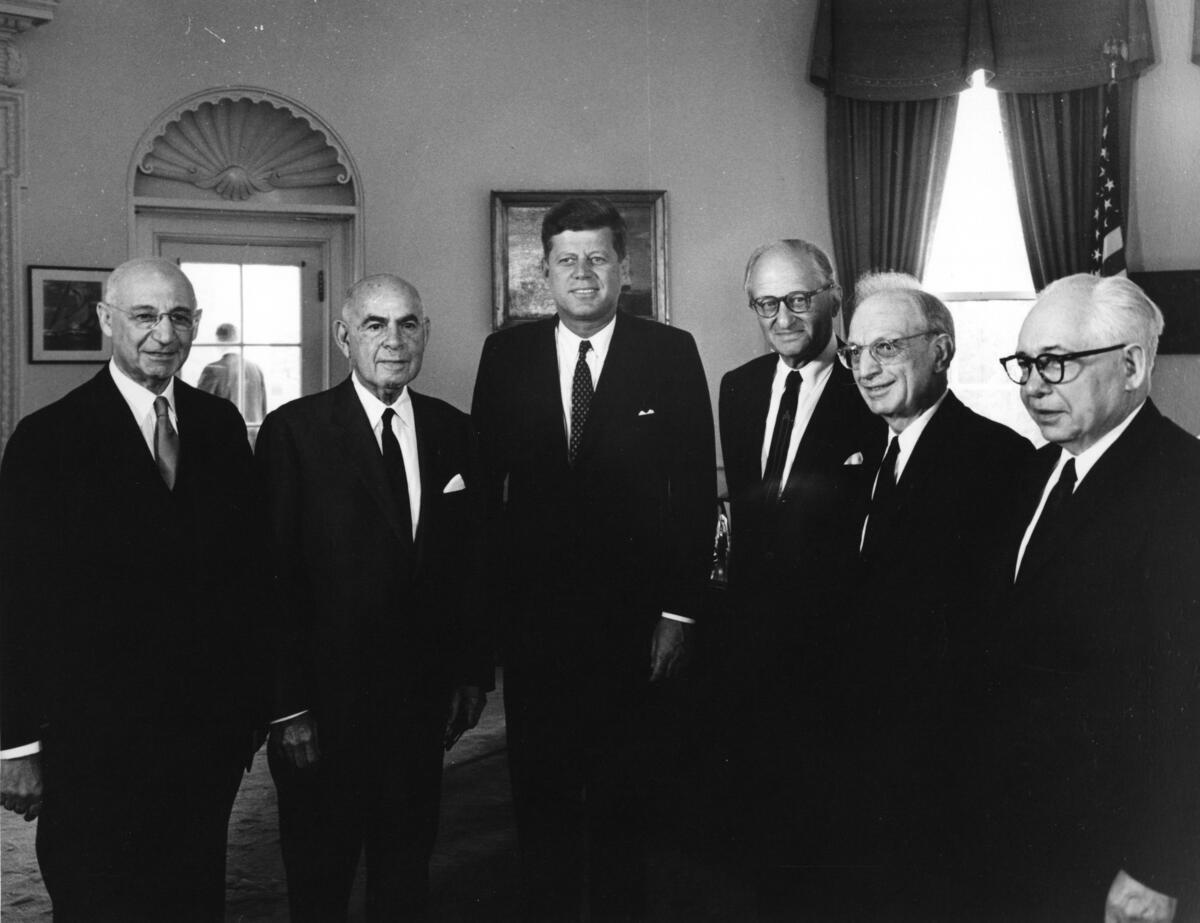by Philip Giraldi, The Unz Review:
 The JFK Assassination Was Good for Zionist Israel
The JFK Assassination Was Good for Zionist Israel
President John F. Kennedy was assassinated sixty years ago. If he had lived and won a second term, the Israeli-Palestinian conflict would have evolved differently. Possibly, the path toward Israeli apartheid and genocide in Gaza could have been avoided.
In his short time in office, Kennedy significantly changed U.S. foreign policy. As documented in the book “JFK and the Unspeakable: Why He Died and Why It Still Matters,” JFK resisted the CIA and military-industrial complex in the policies he set regarding the Third World and the Soviet Union. The Vietnam War, the assassination of Indonesia’s President Sukarno, and continued hostility to Cuba and the Soviet Union would not have happened had Kennedy lived and won a second term.
TRUTH LIVES on at https://sgtreport.tv/
Less well known, Kennedy’s policies also challenged and opposed the military and political ambitions of Zionist Israel. At the time, Israel had only existed for thirteen years. It was still evolving, and the course was not set. There was significant international resolve to find a compromise solution regarding Palestinian refugees from the 1948 Nakba. When Israel attacked Egypt and seized the Sinai peninsula in 1956, the Eisenhower administration demanded Israel withdraw from the captured territory. They complied.
At this time, in the early 1960s, prominent Jewish voices criticized the racism and discrimination of the Israeli government. Israelis like Martin Buber assailed Ben-Gurion and noted that “At the inception of the state, complete equality with the Jewish citizens was promised to the Arab population.” Many influential Israelis realized their long-term security and well-being depended on finding a just settlement with the indigenous Palestinian population.
In the United States, the Jewish community was divided, and many were anti-Zionist. The American Council for Judaism was influential and anti-nationalist. The racist and aggressive character of Israel was not yet set in stone. Nor was American Jewish support for Israel. When Menachem Begin came to the United States in 1948, prominent Jewish leaders, including Albert Einstein, denounced him. They said Begin, who later became Israeli Prime Minister, was a “terrorist” who preached “an admixture of ultra-nationalism, religious mysticism and racial superiority.” Many American Jews had mixed feelings and did not identify with Israel. Others supported Israel but based on there being peace with the indigenous Palestinians.
There are four key areas where Kennedy’s policy substantially differed from what followed his death.
KENNEDY WAS NOT BIASED TOWARD ISRAEL
The Kennedy administration sought good relations with both Israel and the Arab nations. Kennedy aimed to extend U.S. influence throughout the Middle East, including with countries friendly with the Soviet Union and at odds with NATO partners.
JFK personally supported Arab and African nationalism. As a senator in 1957, he criticized the Eisenhower administration for supporting and sending weapons to France in their war against the Algerian independence movement. In a 9,000-word presentation to the Senate Foreign Relations Committee, he criticized “Western imperialism” and called for the U.S. to support Algerian independence. Algerian President Ben Bella, whom France had tried to assassinate and considered far too radical by many in NATO, was given an impressive welcome to the White House.
Kennedy changed the previous frosty relations with the United Arab Republic (Egypt and Syria) led by Gamal Abdel Nasser. For the first time, the U.S. approved loans to them. Kennedy wrote respectful letters to the Arab presidents before he welcomed Israeli Prime Minister Ben Gurion to Washington. The Arab leaders could see the difference and responded with appreciation. Those who claim there was no difference with Kennedy ignore that Egypt’s Nasser, Algeria’s Ben Bella and other nationalist leaders saw a big difference.
In 1960, when Kennedy was campaigning for the presidency, he spoke at the Zionists of America Convention. He made complimentary remarks about Israel but also expressed the need for friendship with all the people of the Middle East. He said the U.S. should “act promptly and decisively against any nation in the Middle East which attacks its neighbor” and “The Middle East needs water, not war; tractors, not tanks; bread, not bombs.”





